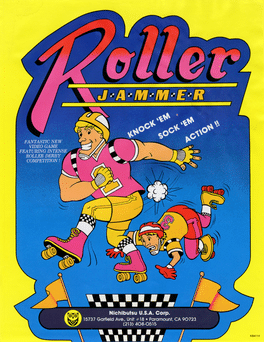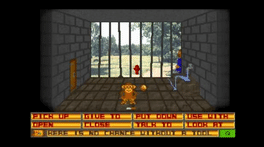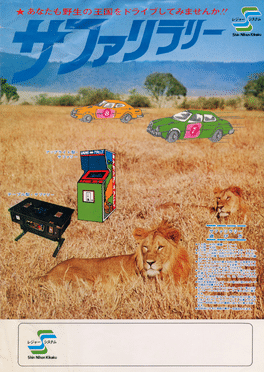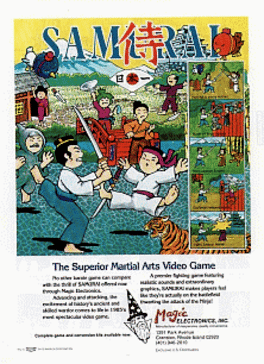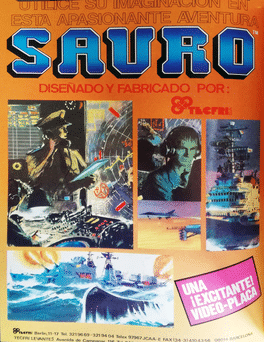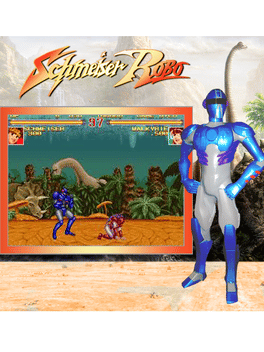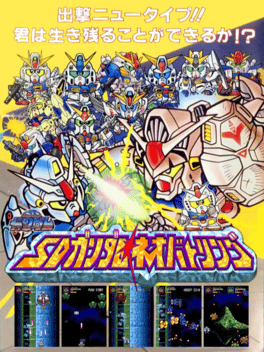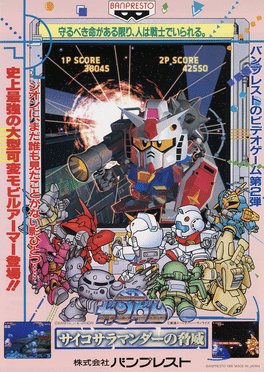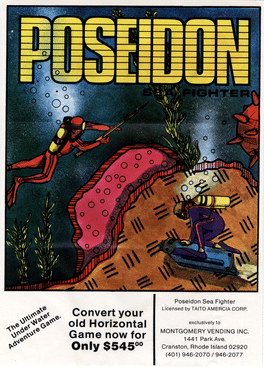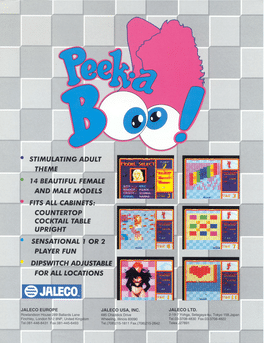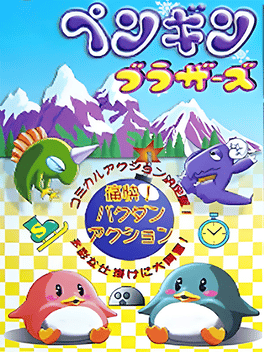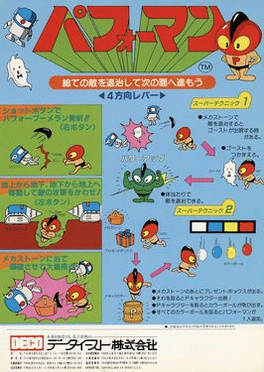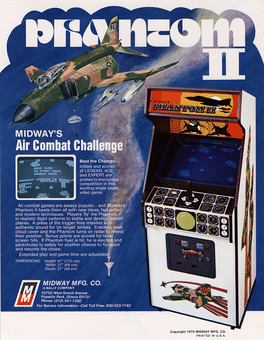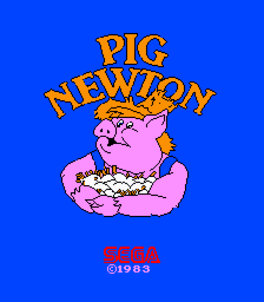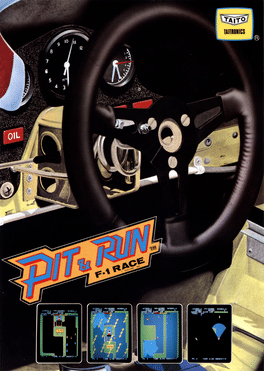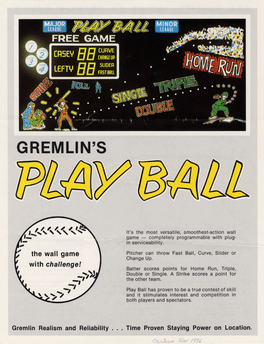Most Popular Arcade Games - Page 102
-
Rock Climber
1981
-
Roller Jammer
1984
-
Runaway
1982
-
S.R.D. Mission
1986
-
Saboten Bombers
1992
Saboten Bombers
1992
A multi-level platform game where the player controls a cactus that has to dodge and defeat its enemies. -
Safari Rally
1979
Safari Rally
1979
A maze game where the player guides a car through a maze-like forest collecting coins while avoiding an enemy cars and snakes. -
Samurai Nihon-Ichi
1985
Samurai Nihon-Ichi
1985
Very difficult, highly obscure action fighter in the vein of Kung Fu Master. Here, move left to right through feudal Japan settings (bamboo forests, over bridges, clearings, villages, etc.) while dealing with various enemies that will kill you with one blow! And no continues either! You have overhead strikes or low, rising strikes with your sword to dispatch your enemies with (fortunately they only take one blow as well). You can also duck or jump by pressing down or up on the joystick, respectively. -
Sauro
1987
-
Schmeiser Robo
1993
Schmeiser Robo
1993
Schmeiser Robo plays much like other 2D versus fighting games of its era, with characters battling in best-two-out-of-three matches against the CPU or another player. It uses an 8-way joystick and three buttons (punch, kick, and guard), introducing one of the earliest dedicated guard buttons in the genre. Unlike typical fighting games, the guard button allows movement even when pressed repeatedly, though it does not block attacks. It also supports advanced defensive and offensive options including short hops, air-guarding, parrying (early form of guard-canceling), counter-attacking, and rush-attacks -
Screw Loose
1983
Screw Loose
1983
Navigate the Robop character around a 3-D perspective playfield while shooting enemies and gathering items for points. Avoid the Inchworm since it will steal your hands! -
SD Gundam Neo Battling
1992
Choose an SD Gundam and destroy Zion units in this vertically scrolling shooter. Hold down the Shoot button for a few seconds and release to use the SD Gundam's secret weapon. -
Sea Fighter Poseidon
1984
Sea Fighter Poseidon
1984
Rescue hostages while defeating the enemy. The number of hostages to rescue increases with each level. When all the hostages have been rescued, the level ends. -
Peek-a-Boo!
1993
Peek-a-Boo!
1993
Move a paddle left and right to prevent a bouncing ball from escaping the screen at the botton. Use the ball to remove a pattern of bricks. Once all bricks are gone you get a reward and advance a level. -
Penguin Brothers
2000
Penguin Brothers
2000
A multi-screen platform game where the players controls penguins fighting against various enemies. -
Performan
1985
Performan
1985
Performan was Toaplan's first shooter, and it's certainly not what one would expect from them, especially when looking at some of their later games. It's actually a strange, overhead shooter much like Robotron. The star is the titular Performan, a native in a jungle that wears a huge mask, who's being stalked by a squadron of drill-wielding robots. He must stop them using balls of energy, his ability to dig underground, and bombs that are set up in every level. He can also go into Power Mode by shooting ghosts that randomly appear, which turns him green and invincible for a short time. Needless to say, Performan is a very weird, very hard game. There are 99 levels and the game loops endlessly, as typical of most early arcade games. The main problem with Performan is that he's far too weak to survive for long. He can't move quickly, his shots are slow, and he can only have one shot on screen at a time, which can easily be dodged. The bombs are an easy way to get rid of two or maybe three at a time, but this usually -
Phantom II
1979
Phantom II
1979
A vertical air combat game where the player controls a jet fighter and battles enemy aircrafts in the sky. -
Pig Newton
1983
-
Pit & Run
1984
-
Play Ball
1972
Play Ball
1972
Play Ball was produced by Gremlin in 1972. From flyer: "It's the most versatile, smoothest-action wall game - completely programmable with plug-in serviceability. Pitcher can throw Fast Ball, Curve, Slider or Change Up. Better scores points for Home Run, Triple, Double or Single. A Strike scores a point for the other team. Play Ball has proven to be a true contest of skill and it simulates interest and competition in both players and spectators. "

